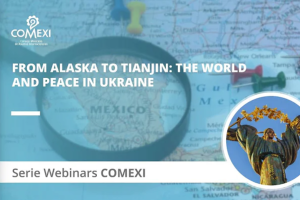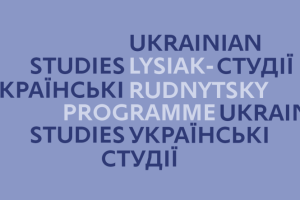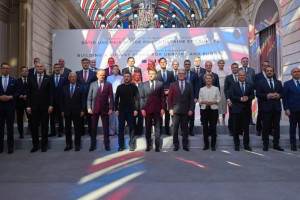The second round of presidential elections: what to expect for Ukraine?

The first round of the 2019 Presidential Election has become one of the most honest and transparent in the history of Ukraine, but candidates continue to use populist promises in their messages. This is how the Ukrainian election was described by the participants of the tripartite online round table Kyiv-Brussels-Washington “Second Round of Election: What Should Ukraine Expect?” organized by the Reanimation Package of Reforms on April 9.
This was confirmed by foreign participants of the event: Senior Fellows at the Marshall Fund of the United States Jonathan Katz and Bruno Lete.
The 2019 presidential election is different from the previous 2014 election because there is more competition among the candidates, stressed Olha Aivazovska, head of Civil Network OPORA. This year, there were significantly fewer violations than in 2014. However, administrative resources were sometimes abused. In particular, the Venice Commission did not recommend starting new state social programs right before the election campaign.
Regarding violations, OPORA observers recorded a significant disproportionality in the number of candidates’ representatives in election commissions.
“5 out of 39 candidates were represented by 99% of district election commission officials,” added Aivazovska.
Volodymyr Zelenskyi’s victory in the first round of the presidential election is a manifestation of a protest sentiment that has recently been observed not only in Ukraine but also in the United States, Britain and many other countries, says Oleksii Haran, Research Director of Ilko Kucheriv Democratic Initiatives Foundation.
“As for the positive features of this year’s presidential election, there is currently no electoral division of Ukraine by regions as was the case in 2014, 2004 and 2010. Also, both candidates who qualified for the second round of election officially declare the pro-European foreign policy,” said Haran.
Trends and debates in the “warm bath”
The main trend of the 2019 presidential campaign is the widespread use of populist slogans and promises: increase in salaries and pensions, utility tariffs decrease, etc. However, the candidates did not explain how this will be implemented, noted Inna Borzylo, executive director of Centre UA NGO.
Another trend is the fact that the presidential candidates mainly focused their attention on socio-economic issues, which, according to the law, are mainly within the competence of the Parliament and the Government. However, the issues that fall under the authority of the President – national security and foreign policy – were paid much less attention to by the candidates, summed up Borzylo.
As for the issue of broadcasting the debates between the candidates, many social and political TV shows on different TV channels were a “warm bath” for them rather than a serious competition, said Halyna Petrenko, Director of Detector Media NGO.
“The most ideologically entrenched TV channels were “1+1” (in favor of Zelenskyi) and “Priamyi” (in favor of Poroshenko),” says Petrenko.
Photo: Ukrainian Crisis Media Center
The tripartite online round table was arranged within the institution building program of the Centre for Democracy and Rule of Law, with the financial support of Sweden. The Transatlantic Task Force on Elections and Civil Society in Ukraine is a joint project of the Reanimation Package of Reforms, the Marshall Fund of the United States, the U.S. Ukraine Foundation and the Ukrainian World Congress, joined by a number of leading NGOs.












